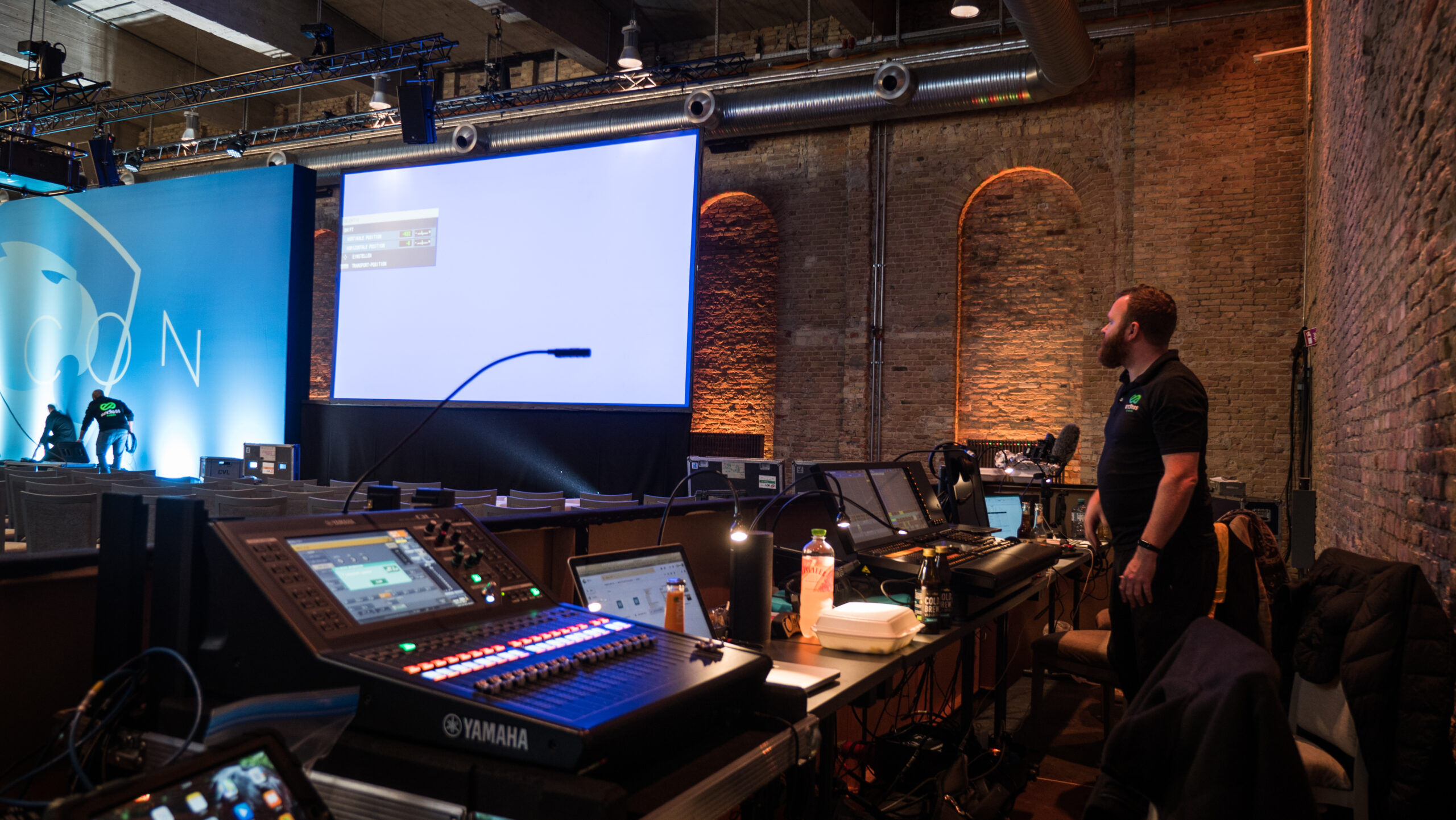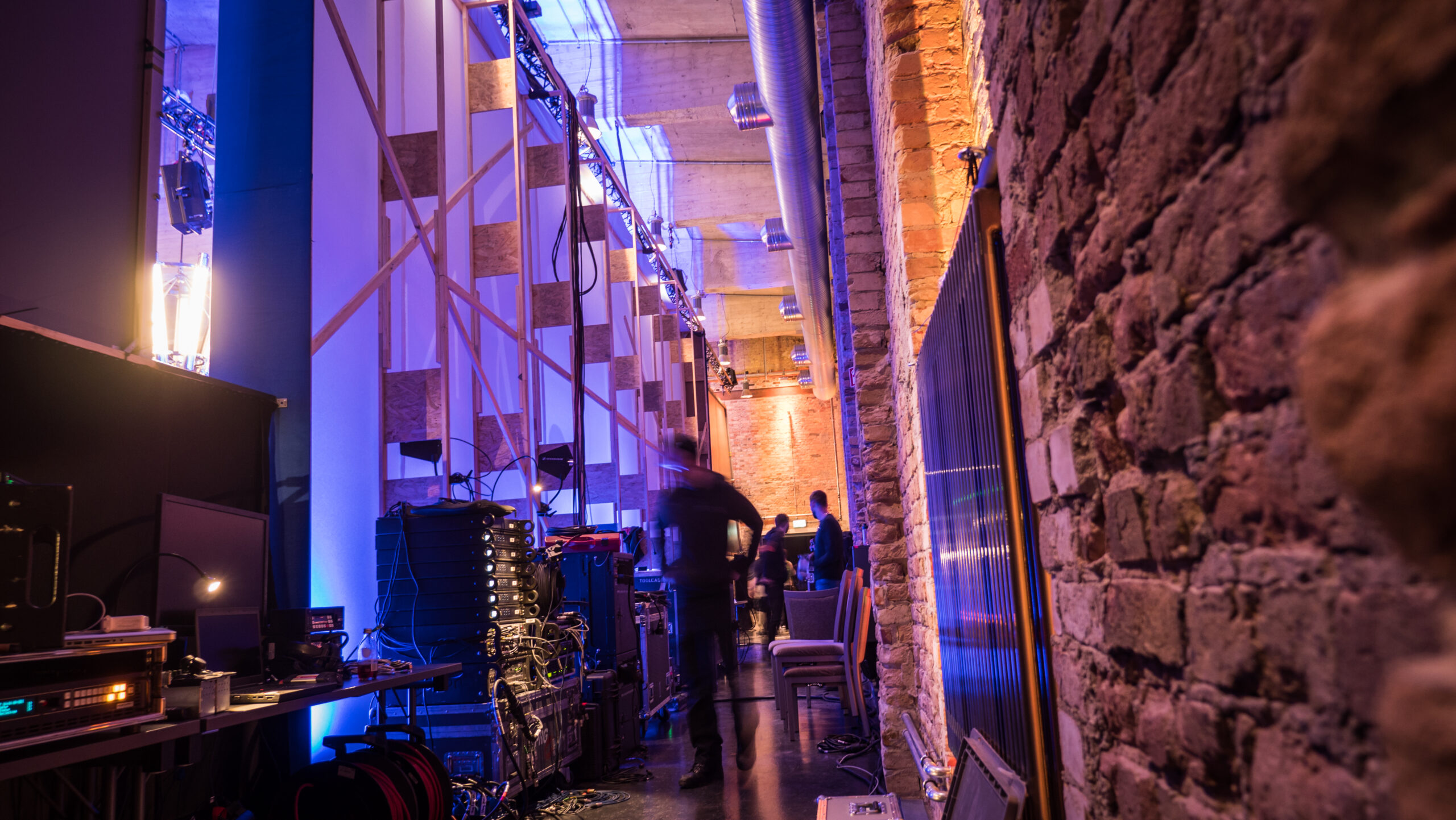Understanding Event Production: Why It Is Very Important for Effective Celebrations
Event production plays a critical function fit effective gatherings. It entails cautious preparation, coordination, and implementation to assure every information straightens with the event's vision. This process not only boosts participant experiences but likewise facilitates significant links among individuals. Comprehending the intricacies of event production can considerably influence the total outcome. What are the crucial elements that add to an effective event, and just how can they be effectively handled?
The Function of Event Production in Developing Memorable Experiences
Numerous aspects add to the success of an occasion, event production plays a critical function in crafting unforgettable experiences. This complex procedure incorporates various elements, consisting of preparation, logistics, and execution. Efficient event production warranties that every detail straightens with the overall vision, creating a smooth circulation that astounds participants. By coordinating timelines, managing resources, and supervising technical facets, event manufacturers establish a foundation for impactful experiences.Moreover, they curate settings that resonate with the target audience, enhancing engagement and emotional link. From picking suitable venues to integrating innovative technology, the selections made during production greatly influence just how participants view and keep in mind the event. By prioritizing quality and focus to information, event production transforms common gatherings right into remarkable moments, leaving lasting impacts. Ultimately, the skillful orchestration of these elements specifies the essence of an event, showcasing the relevance of professional event production in achieving exceptional end results.
Secret Components of Effective Event Production
Effective event production rests on several essential parts that ensure success. Preparation and sychronisation develop a solid structure, while technological configuration demands resolve logistical needs. In addition, applying audience interaction strategies improves the overall experience, making the event memorable.
Preparation and Coordination
Planning and sychronisation function as the foundation of successful event production, making certain that every information aligns perfectly to create a remarkable experience. Reliable preparation includes establishing a clear vision and objectives, while sychronisation entails the meticulous company of logistics, schedules, and sources. A distinct timeline is necessary, directing all stakeholders with vital milestones and tasks. Communication plays a pivotal role, promoting collaboration amongst staff member, vendors, and venue team. Routine conferences and updates assist to address obstacles immediately, making sure that every person remains lined up with the event goals. Ultimately, an organized approach to planning and sychronisation not just improves performance but additionally substantially contributes to the overall success and satisfaction of the event for participants and coordinators alike.
Technical Configuration Requirements
An effective event relies heavily on its technological arrangement requirements, which incorporate crucial elements such as audio-visual devices, lights, hosting, and connection. Audio-visual equipment consists of microphones, speakers, and projectors, guaranteeing that discussions and performances are delivered plainly. Proper illumination improves the atmosphere and highlights crucial areas, while staging supplies the essential system for audio speakers and entertainers. Connectivity, consisting of Wi-Fi and electrical access, is vital for seamless interaction and innovation assimilation. Each component must be thoroughly planned and performed, customized to the event's details needs. Poor technological configurations can lead to disruptions, adversely impacting the total experience for attendees, emphasizing the significance of complete prep work and focus to detail in event production.
Audience Interaction Methods

The Importance of Preparation and Coordination
Preparation and sychronisation are important to the success of any type of event production. Efficient timeline monitoring, resource allowance approaches, and group interaction dynamics play vital functions in making sure that all components collaborated flawlessly. Without an organized method to these aspects, events run the risk of dealing with delays, spending plan overruns, and miscommunication among staff member.
Efficient Timeline Monitoring


While effective event production often pivots on creative thinking and execution, reliable timeline monitoring continues to be a crucial element that can not be overlooked. A well-structured timeline works as the foundation of any kind of event, making certain that each phase is executed in a prompt manner. It permits the coordination of numerous tasks, from place configuration to visitor arrivals, while avoiding possible bottlenecks. By plainly laying out target dates and obligations, event planners can maintain emphasis and adjust to unforeseen difficulties. Additionally, a diligently crafted timeline fosters communication amongst team members, advertising accountability and partnership. Inevitably, reliable timeline management not just boosts functional efficiency but likewise adds considerably to the general success and smooth execution of the event, Learn More Here leaving guests with a remarkable experience.
Resource Allotment Approaches
Efficient source allocation techniques are vital for the effective implementation of any event. Proper planning enables event coordinators to recognize and disperse sources, such as funds, employees, and materials, in a manner that optimizes performance. By assessing the certain needs of each element of the event, organizers can prioritize tasks and assign resources accordingly. Sychronisation amongst different departments guarantees that all elements, from satisfying audiovisual needs, are sufficiently sustained. This calculated technique not only reduces waste but additionally enhances the total experience for participants. In addition, expecting prospective challenges and having contingency plans in position enables smoother operations. Ultimately, effective source allowance adds considerably to achieving event purposes and ensuring a memorable gathering.
Group Communication Dynamics
Just how can seamless interaction amongst team participants change the event production process? Reliable interaction is important for working with tasks, sharing updates, and dealing with challenges in real-time. When employee take part in open discussion, they can quickly recognize possible issues and create services collaboratively, minimizing hold-ups and misunderstandings. This vibrant fosters a cohesive setting where everyone recognizes their functions and duties, resulting in an extra synchronized initiative. Furthermore, normal check-ins and comments loopholes enhance responsibility and guarantee placement with the event's objectives. By prioritizing interaction techniques, groups can streamline process, bolster morale, and inevitably elevate the general top quality of the event. Successful events pivot on the capacity to communicate successfully, making it a vital part of event production.
Enhancing Attendee Involvement Through Imaginative Style
Imaginative layout plays a critical function in boosting participant engagement at events, as it promotes an immersive atmosphere that astounds individuals' attention. By integrating cutting-edge visuals, interactive components, and thematic decor, event planners can produce unforgettable experiences that reverberate with attendees. Thoughtful layout designs promote movement and exploration, encouraging visitors to engage with display screens and each other.Incorporating modern technology, such as augmented reality or live polling, further enriches the experience, permitting real-time feedback and communication. In addition, sensory elements like illumination, noise, and fragrance can stimulate feelings and produce an extra engaging atmosphere.The use of narration via layout aids convey the event's purpose and message, making it much more relatable for guests. Ultimately, creative design not just boosts engagement yet additionally grows links among participants, leaving a lasting impression that extends past the event itself. This critical technique to style is necessary for effective events.
Handling Logistics for a Smooth Execution
While the exhilaration of an occasion can draw attendees in, taking care of logistics is essential to protect a seamless implementation. This includes carefully coordinating numerous aspects, from venue option and design to event catering and transportation. Reliable logistics administration guarantees that all parts line up, enabling a smooth circulation from registration to the verdict of the event.Additionally, a clear communication strategy among all stakeholders is vital. This includes team, vendors, and volunteers, that must be educated of their roles and responsibilities. Expecting potential obstacles, such as equipment failure or unanticipated climate condition, can even more boost the event's success.Creating a comprehensive timeline aids keep the group on track and permits timely modifications. Inevitably, well-managed logistics not only promote a pleasurable experience for guests but likewise mirror the professionalism and trust and reliability of the organizers, contributing to the overall success of the event.

The Impact of Technology on Event Production
What function does innovation play in shaping modern event production? Modern technology has link become a foundation of efficient event production, improving both intending and execution procedures. From sophisticated registration systems to interactive apps, technology simplifies guest monitoring and enhances engagement. Online event platforms allow coordinators to get to broader audiences, damaging geographical obstacles and assisting in hybrid events that combine in-person and on the internet experiences.Additionally, audiovisual technologies, such as high-def screens and stereos, boost the high quality of presentations and efficiencies, ensuring an unforgettable experience for participants - event production charlotte. Social network assimilation allows real-time responses and interaction, promoting area engagement previously, throughout, and after the event. Data analytics devices aid organizers in keeping an eye on individual actions and preferences, allowing customized experiences that reverberate with diverse audiences. Generally, the assimilation of innovation in event production not only improves operational efficiency but additionally enriches attendee experiences, inevitably contributing to the success of the event
Assessing Success: Determining the Results of Your Event
Success in event production rests on reliable evaluation, which involves determining a range of results to analyze the total influence of an occasion. To attain this, coordinators can use both qualitative and measurable metrics. Measurable actions might consist of participation numbers, ticket sales, and revenue generated, while qualitative assessments might involve participant complete satisfaction surveys and feedback forms.Additionally, evaluating social networks interaction and media coverage can provide understandings right into the event's reach and brand name influence. Contrasting these metrics against predefined objectives assists figure out if the purposes were met.Furthermore, post-event debriefs with the preparation group can discover lessons learned and areas for renovation. By systematically assessing these outcomes, event manufacturers can improve future gatherings, ensuring continual development and success. Eventually, a detailed examination not only highlights achievements yet likewise informs critical choices for subsequent events, fostering a society of excellence in event production.
Regularly Asked Concerns
What Qualifications Should an Event Manufacturer Have?
Event producers need to possess solid organizational abilities, creative thinking, and efficient communication capabilities. A background in task management, budgeting, and arrangement is vital. Appropriate certifications and experience in varied event kinds even more boost their certifications.
Just How Can I Minimize Event Production Costs Successfully?
To effectively minimize event production costs, one can enhance supplier selection, work out contracts, use internal resources, focus on essential aspects, carry out technology for effectiveness, and discover sponsorship opportunities to balance out expenditures without compromising quality.
What Are the Usual Difficulties in Event Production?
Typical obstacles in event production include budget restrictions, logistical control, vendor administration, time constraints, participant engagement, technical problems, and unanticipated conditions - event production charlotte. Each element can considerably influence the total success and smooth execution of the event
How Do I Choose the Right Location for My Event?
Selecting the best location includes taking into consideration factors such as location, capacity, facilities, and budget plan. Furthermore, examining access and setting assures the picked room straightens with the event's goals like it and improves the general guest experience.
What Is the Common Timeline for Planning an Event?
The typical timeline for planning an occasion differs, however typically includes stages such as principle growth, venue choice, vendor coordination, promo, and last prep work, commonly covering numerous months to assure a successful execution.